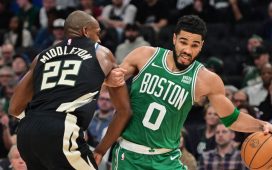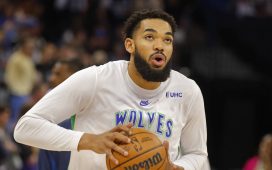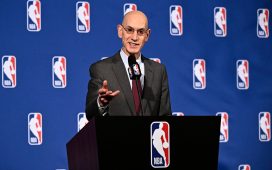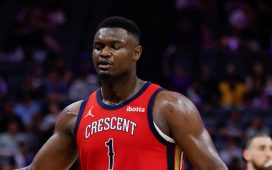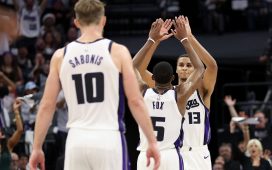The resurging coronavirus has in many places exposed fault lines of class and privilege that allow those with means to escape high-risk environments, to put off work and to elide financial concerns in the interest of staying safe.
The American sports industry may be no different, as leagues move to restart play. A blend of dynamics — money, status and job security — could determine which athletes will have the ability to decide to sit out and which will see little choice but to play.
Many players, of course, are raring to get back on the field. But a wave of decisions this week to opt out of play hinted at an undercurrent of anxiety that could grow in the coming weeks as more leagues near their returns.
In the N.B.A., Avery Bradley of the Los Angeles Lakers and Thabo Sefolosha of the Houston Rockets this week joined a small but growing group of players who will sit out when the league restarts on July 30. In Major League Baseball, a handful of players, including Ryan Zimmerman of the Washington Nationals and Ian Desmond of the Colorado Rockies, came to similar conclusions.
These were for the most part wealthy, established players, and in each instance a question could be posed: Could another player with the same level of concern for his well-being, the same level of fear of the coronavirus and its multifarious consequences, but with less money and less job security, come to the same decision?
The coming weeks could show who feels empowered, and who feels handcuffed, in making the decision to prioritize safety.
“If you’re a player who’s made $30 million a year for the last three years, you’re ability to say ‘I’m not playing’ is different from the guy who’s been struggling for the last three years, is ready to play now in the big show, has debt coming out of his ears, and who needs to show his talent and get rewarded,” said Gene Orza, the former general counsel and chief operating officer for baseball’s players union. “Those are two completely different human beings.”
“So to have a one-size-fits-all approach to it is silly,” he added. “It’s just not going to work.”
Every athlete had, in Orza’s words, “a uniquely personal constellation of factors” underpinning his or her decision to play. But it has become clear that those with the financial means or a level of professional status will be best equipped to make the choice to forgo a paycheck and year of play.
Zimmerman, 35, who announced on Monday that he would be “staying safe at home,” has earned about $136 million in his career and won a World Series. Desmond, 34, said on the same day that playing this season was “a risk I am not comfortable taking,” noting his desire to stay close to his pregnant wife and four children. He has made $76 million in his career.
Bradley, 29, a presumed starter for the Lakers, said in his own statement, “I can’t imagine making any decision that might put my family’s health and well-being at even the slightest risk.”
These were reasonable decisions. But are they available for the rookie or journeyman player to make?
The major sports leagues this summer are operating under essentially the same basic labor rule when it comes to the pandemic: Anyone with a pre-existing medical condition can petition to sit out and still get paid; anyone merely fearful of the virus can also sit, too, but will not get paid.
“Let’s talk about the ethics of this,” said Charles Grantham, the director of the Center for Sport Management at Seton Hall University. “Is it fair to be asking these people to try to come back and attempt this?”
Many players may not feel like they have a choice.
Athletes have short careers. The country’s top sports leagues are made up of the absolute upper crust of talent. The job market is cutthroat, and time on the sideline is therefore time wasted.
“They have three to five years to max out a contract based on the uniqueness of their talent,” said Grantham, a former N.B.A. executive. “And the uniqueness of their talent almost demands that they play, that they don’t miss a season. So that risk-reward becomes an issue with every single player.”
The National Women’s Soccer League, in this regard, offers an illuminating case study. As it prepared last month to become one of the first professional leagues in the United States to restart competition, officials promoted a policy that allowed any player to sit out and still receive their full salary and benefits for 2020.
But ultimately the only players who publicly decided not to play because of coronavirus concerns were Megan Rapinoe, Tobin Heath and Christen Press — three of the biggest stars in women’s soccer. (The league did have an entire team forfeit the competition before it even began after six players and four staff members tested positive for the virus).
“I know how fortunate I am to be able to make this choice,” Press said in a statement announcing her decision. “I have enormous respect and gratitude for those who do not have the luxury to choose whether to report to work.”
Press could have been talking about essential workers across the country who do not have the option to do their jobs remotely. But she also could have been referring to her teammates and opponents.
It would be hard to believe that the three national team stars were the only players in the league who preferred to stay home. And many stated they were happy to play. But others undoubtedly felt the pressure of keeping their place in a squad pecking order, of being seen as a good team player.
“If you’re not playing, and you’re a professional, there’s another crop of professionals coming next year,” Grantham said. “Do you lose your competitive advantage, do you lose your skill, because you’re not playing?”
For all the inherent pressures that exist, though, the number of players hesitating to return may increase as the number of coronavirus cases nationwide continues to balloon.
That tension materialized vividly last weekend in Brazil — which has recorded more than one million cases so far, second in the world behind only the United States — where the top soccer league’s return was met with open protests from players and executives, including one team that walked onto the field for a game holding a banner that questioned why they were playing.
Those types of sentiments, furthermore, could clash with pressure from fans who want their favorite players on the field, no matter what.
On Wednesday night, for instance, Eireann Dolan, the wife of Washington Nationals pitcher Sean Doolittle, responded to people on social media who were hectoring her husband after he suggested that his wife’s pre-existing lung issues could compel him to stay home this summer. Dolan, in colorful language, attacked the notion that players who put their health and family first were “weak or unmanly.”
Orza has been around sports long enough to know that some subset of fans would likely be “yelling and screaming” about players who elected not to play their teams this season.
“But now close your eyes, and imagine that guy is your son,” he said. “Now how do you feel?”
James Wagner and Scott Cacciola contributed reporting.

